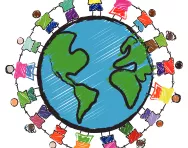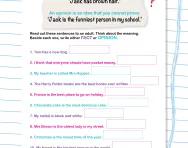Important update from TheSchoolRun
For the past 13 years, TheSchoolRun has been run by a small team of mums working from home, dedicated to providing quality educational resources to primary school parents. Unfortunately, rising supplier costs and falling revenue have made it impossible for us to continue operating, and we’ve had to make the difficult decision to close. The good news: We’ve arranged for another educational provider to take over many of our resources. These will be hosted on a new portal, where the content will be updated and expanded to support your child’s learning.
What this means for subscribers:
- Your subscription is still active, and for now, you can keep using the website as normal — just log in with your usual details to access all our articles and resources*.
- In a few months, all resources will move to the new portal. You’ll continue to have access there until your subscription ends. We’ll send you full details nearer the time.
- As a thank you for your support, we’ll also be sending you 16 primary school eBooks (worth £108.84) to download and keep.
A few changes to be aware of:
- The Learning Journey weekly email has ended, but your child’s plan will still be updated on your dashboard each Monday. Just log in to see the recommended worksheets.
- The 11+ weekly emails have now ended. We sent you all the remaining emails in the series at the end of March — please check your inbox (and spam folder) if you haven’t seen them. You can also follow the full programme here: 11+ Learning Journey.
If you have any questions, please contact us at [email protected]. Thank you for being part of our journey it’s been a privilege to support your family’s learning.
*If you need to reset your password, it will still work as usual. Please check your spam folder if the reset email doesn’t appear in your inbox.
Talking to children about terrorism and distressing events

Sometimes, it seems as if barely a day goes past without news of yet another terror attack hitting the headlines. And often, as parents, our instinct is to shield our children from the upsetting news. But protecting our kids from harrowing news can be difficult, if not impossible, thanks to the internet, social media and 24/7 news broadcasting. This means that we all need to know how to talk to our children about terror attacks, as well other distressing events like fatal accidents and natural disasters.


Start a unique learning programme!
- Weekly programme for each school year
- Worksheets sent direct to your inbox
- Keeps your child's learning on track
‘Parents often take opposing views when they’re talking to their children about upsetting events,’ says Sacha Richardson, director of family services at Winston’s Wish, the charity for bereaved children (freephone 08088 020 021). ‘Some try to protect them from the news; others don’t censor what they see at all, perhaps because they’re in shock and trying to process what’s happened themselves. Both of these stances are understandable, but neither is a good way to approach a distressing event with your child.’
So how can we best talk to our children about terror attacks and other upsetting news that might cross their radar?
1. Talk truthfully
The golden rule when talking to your child about distressing events is to be honest, in an age-appropriate way. ‘While it’s natural to want to protect them from hearing about bad things, your child is almost certainly going to hear about them, whether that’s on the news, through social media or in the playground,’ Sacha says.
‘The danger of your child hearing about an upsetting event without your input is that they may not have the life experience to understand it, and their confusion and misunderstanding could lead to greater distress,’ Sacha continues. ‘It’s important to be truthful but reassuring, to help them make sense of what has happened and cope with any difficult feelings.’
2. Monitor their media access
Whether they’re surfing the internet, listening to the radio in the car, or chatting in the playground, today’s children are exposed to a constant stream of information. When a tragedy unfolds, it can be hard to control what they see or hear, and this may mean that they’re exposed to overly graphic or unreliable information.
It’s impossible to completely control your child’s media intake, but try to direct them to sources that are not just reliable, but also tailored to their age, such as CBBC’s Newsround and the children’s newspaper First News.
3. Emphasise the rarity of upsetting events
With so many terror attacks in the news, it’s no surprise that some children are worried that they too might be caught up in a horrific incident.
‘Events like this seem common because of all the news coverage, but it’s important to point out to your child that they are, in fact, very rare,’ Sacha advises. ‘It’s because they’re so rare that they’re so newsworthy, and get so much coverage. We hear about them because they’re shocking and upsetting, but it’s extremely unlikely that your child will be involved in an event like this.’
This applies not just to terror attacks, but also to other catastrophic incidents like natural disasters.
4. Discuss what’s being done
When something terrible happens, we may not be able to promise our children that it won’t happen again, but we can help them understand what’s being done to reduce the likelihood of another distressing event. ‘For example, you can explain that the police are doing a really thorough investigation and have arrested the people they think were involved, and the Government is doing all it can to make these events as rare as possible,’ says Sacha.
Often, the suspect dies at the scene of a terror attack. ‘You can point out to your child that the person who did it has died, so they won’t do it again,’ Sacha adds.
5. Talk about bad events, not bad people
In the aftermath of a terror attack, it’s tempting to simplify matters by telling your child that the perpetrator was a ‘bad man’. But this can do more harm than good, says Sacha. ‘It can give children the impression that there are lots of fundamentally “bad people” out there, which they might find scary.’
Instead, try to talk about the event being bad, rather than the person, and why they might have done it. ‘You could explain that some people have an illness of the mind that means they’re not thinking clearly, or that they’ve been made to think that way by other people,’ Sacha suggests.
6. Keep your own emotions in check
It’s normal to be upset when a terrible event happens, but try to keep your emotions under control when you’re talking to your child. ‘Children pick up on your tone of voice and body language, so while it’s okay for them to see that you’re moved, it’s important that you’re able to sound calm and reassuring,’ Sacha says. ‘This will show your child that awful things happen, but we can deal with them, and one way to do that is to talk about them.’
7. Look for the helpers
In every tragedy, we see people dropping everything to help those affected, from the emergency services who are first on the scene to members of the public offering meals and accommodation. Encouraging your child to look for the helpers in every situation will show them that even in the worst circumstances, there are always people doing good.
8. Find a way for your child to help
As adults, we can feel powerless when a tragedy unfolds, and this feeling can be even more intense for children. Finding a way for them to help can channel their sadness and anxiety into something positive. ‘It can be really helpful for a child to know there’s something they can do, like raising money for a charity that’s involved with the event,’ Sacha says.
9. Acknowledge their emotions
Sometimes, children become so worried or upset about a distressing event that it starts to affect their lives. They may be anxious about being away from you, or about a specific thing like using public transport. ‘In these cases, talk to your child about what in particular is upsetting them, as it may be something you would never have expected,’ Sacha says. For example, if they hear in the news about a child called Olivia being killed, they may mistakenly think it’s Olivia from school.
Some children’s worries manifest through nightmares, and this can be even more upsetting if they think they’re premonitions of a terrible event. ‘It’s helpful to point out to your child that we often have bad dreams because we’re worried about something, rather than as an indication that something awful is going to happen,’ explains Sacha.
10. Work with their school
In the case of a major incident like the Manchester bombing, it’s likely that your child’s school will acknowledge it in an age-appropriate way. ‘When an event is so clearly on everyone’s mind, it’s important for schools to address it, even through something simple like a minute’s silence,’ says Sacha. The teacher or headteacher may also be a useful source of advice if you’re not sure how to broach the subject with your child.
11. Do something positive
What children really need when they're anxious and worrying about what’s happening in the world is a bit of TLC. And while it’s important to talk to them about their feelings, gentle distraction can help them keep their worries in proportion. A bedtime story, an hour in the park, baking cakes together or a big hug is often the best medicine and just what they need to reassure them that everything’s okay.








